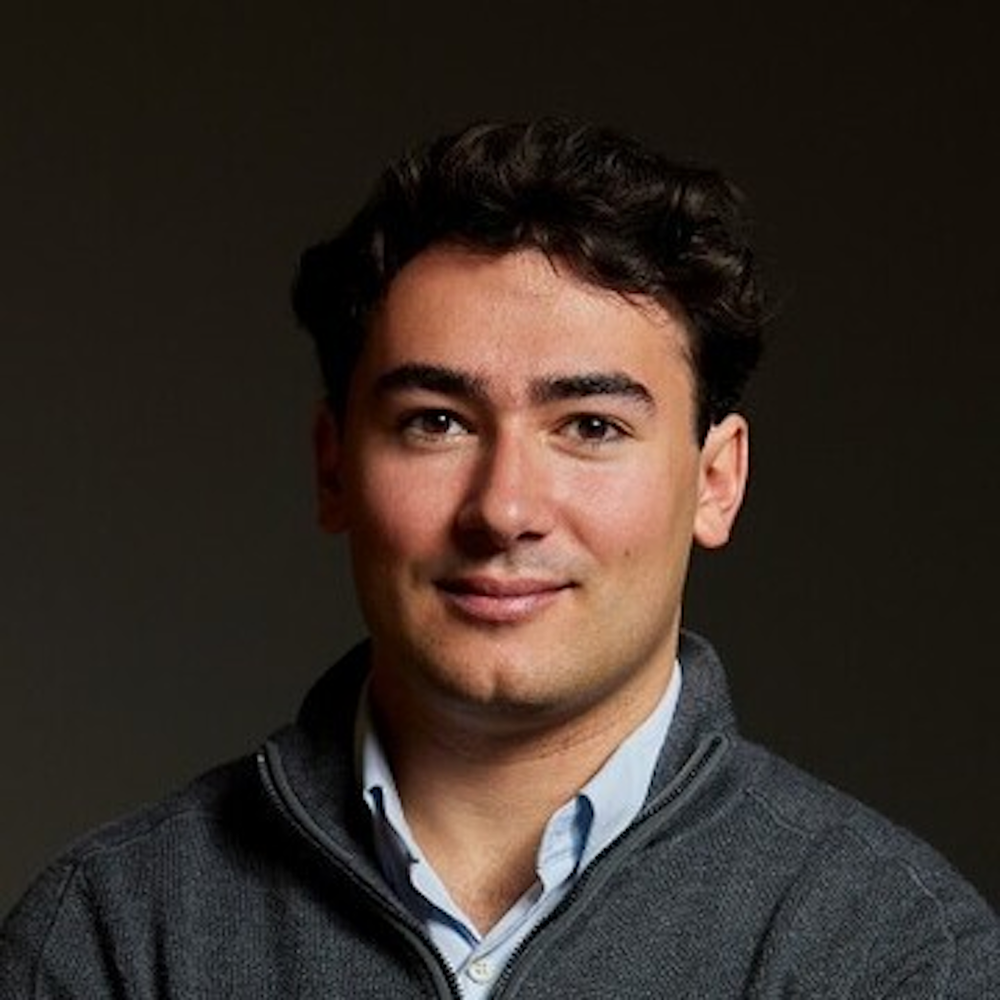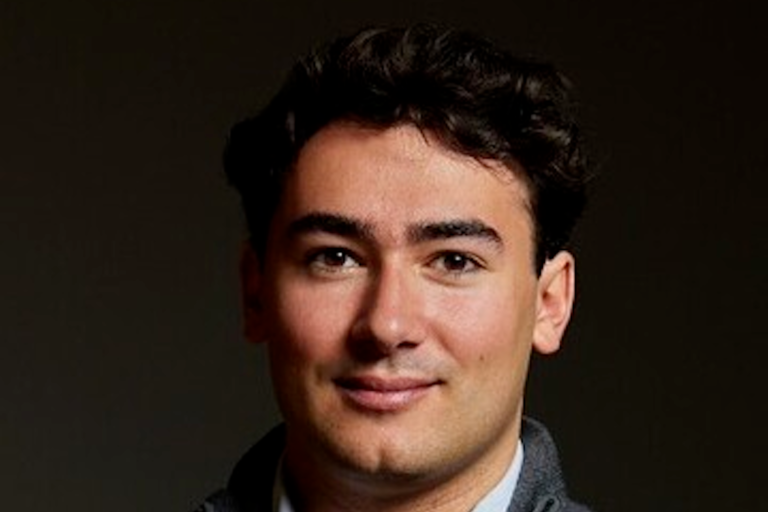In this Side Hustle Spotlight Q&A, we feature Dylan Diamond, co-founder and CEO of Saturn. Diamond and co-founder Max Baron launched Saturn, a calendar app, in 2017 while they were students at the University of Pennsylvania to “support the day-to-day complexities of high school, especially its chaotic block schedules.”
 Image courtesy of Saturn. Dylan Diamond.
Image courtesy of Saturn. Dylan Diamond.
When did you start the side business that became Saturn and what was the catalyst?
In 2015, I developed an app for school that eventually became the foundation for Saturn. At the time, I was a senior at Staples High School in Connecticut, and at the beginning of the school year, everyone wanted to know who was in their classes. I initially developed a schedule-sharing web app where students could add their classes and find their classmates.
The app quickly took off at Staples, with 80% of the school's 1,800 students using it daily. Since everyone was adding their classes, I realized an immediate improvement would be to turn it into a full-fledged calendar app that supported a very complex rotation schedule. I named the app iStaples and it allowed people to manage their schedules and see what classes their friends were taking.
Three years after I developed my first app for my school, my co-founder and I launched similar apps at several nearby schools and began developing Saturn.
RELATED: Colleagues-turned-friends start side hustles at Amazon — now their 'full jobs': They're making over $20 million a year: 'We jumped in with both feet'
When did you decide to drop out of college to focus on Saturn full time, and what motivated that decision?
It wasn't as aggressive a “decision” as you might think. My co-founder, Max Baron, and I met in 2017 when we were sophomores at the University of Pennsylvania. Max was a full-time student and working full-time, and had launched a consulting practice helping companies like Beats by Dre and T-Mobile develop marketing strategies to reach younger consumers. Around the time we met, he had been hired by global marketing agency Havas to lead their efforts into this age group.
At the same time, iStaples had gained very strong support within Staples High School; about 80% of students still used the product daily. We decided to explore whether this concept could scale. Three weeks after our meeting, we launched another school with our white-labeled app to see product-market fit with other schools. Half of this second school was on board within three hours, and we considered this a strong validation. We quickly expanded to 17 schools, each with their own app, but decided to consolidate into one app, primarily to help us deliver features to users more quickly. We named it Saturn, after the Roman god of time.
When we hit 50, we met our first investors in California. General Catalyst led our seed round. We quickly moved back to Pennsylvania and packed up our apartment. We had started living together by that time. We didn't talk much. We both applied for leave of absence and haven't been back since.
RELATED: Their 'Magic Internet Money' Side Hour Tops $1 Billion in Sales: “We emptied six figures of cash onto the counter. The look on the banker's face was priceless.”
You were also a Tesla employee while in college. What was that like?
While in high school, I developed an Apple Watch and iOS application that effectively acted as a remote control for key Tesla functions. The application was called Tesla Toolbox. The application became popular among Tesla owners and the company contacted me, eventually hiring me first as an intern and then as a full-time software engineer on their Supercharger Analytics team.
I was based in Philadelphia during my time at UPenn but would regularly visit our team in San Francisco. I was enrolled in a very rigorous dual degree program at UPenn and made sacrifices to continue working at Tesla, but I felt it was the right trade-off because I was learning more at Tesla than I would in the classroom.
What has Saturn's fundraising journey been like?
In 2019, the company raised $9M in two seed rounds from General Catalyst and Coatue, and in 2021, it raised $35M in Series A from these same firms and other investors including Insight Partners, Bezos Expeditions, Marc Benioff, Dara Khosrowshahi, Inspired Capital, Sound Ventures, and Dylan Field.
What was the biggest challenge you faced while building Saturn and how did you overcome it?
Today we support over 19,000 schools and it all started with an app I built for myself and my school that perfectly supports our calendar.
As we started to launch more schools, we realized that our retention would increase if we provided custom support for each school's calendar. It's really difficult to provide that experience to users because each school has their own schedule, they run on a rotation, and they're always changing. This is what really motivated us to focus on this strategy, because we knew that if we could solve this problem, we could maintain our retention as we grew the number of schools we supported.
When you join the product today, every detail of your calendar will be visible in the app – it's a magical experience for your users and one of the reasons we've been able to build such a compelling experience for this hard-to-reach demographic.
Getting that data at scale has been hard. Initially, we relied on users telling us they needed to update their schedules. Now, that data is crowdsourced and requires a significant amount of density at each school. It took years of patience from our team, as well as our investors, to get to that density.
RELATED: College friends start 'fun' side hustles to appear on 'Shark Tank' — and now their idea is helping dozens of people make extra money: 'Start saying yes'
When you think about Saturn's future, what are you most excited about?
We built a calendar experience that we believe will scale with the dynamics of high school life, helping students connect with their peers, make plans with friends, and discover community events while also helping them manage their busy schedules and set themselves up for academic and extracurricular success.
We have already moved from a utility app to a full-fledged social product and are proud to be a social media app. keep It saves you time instead of wasting it like other products on the market.
What do you enjoy most about working at Saturn?
We built our first app to solve a problem that me and my friends face every day. Last school year, millions of students across over 19,000 schools used Saturn. It's really gratifying to see the work we've done iteratively to resonate with students across the country. This is clearly a product that Gen Z needs, and we're incredibly committed to restoring their time, instead of taking it away with yet another feed.
RELATED: A Sweet Side Hustle Started at an Old CVS Made Me $800,000 in One Year Now, she's repeating the success with her daughter and is already over eight figures.
What advice would you give to someone wanting to start a successful side hustle or full-time business?
Build a product that addresses your problems. It's much easier to build a product for user stories that you understand deeply. It's much easier to empathize with yourself than it is to empathize with others. When we started hiring, we also focused on hiring talented young college students and recent graduates who we thought would have a deep understanding of our user demographic. Building a product for this demographic is already difficult because there are so many great products out there and expectations are conditioned by the performance of mature products like Snap, TikTok, and Instagram. We thought this closeness to our target users would be a huge advantage.
This article is part of our ongoing Young Entrepreneur® series, showcasing entrepreneurial stories, challenges and successes. Young business owner.


